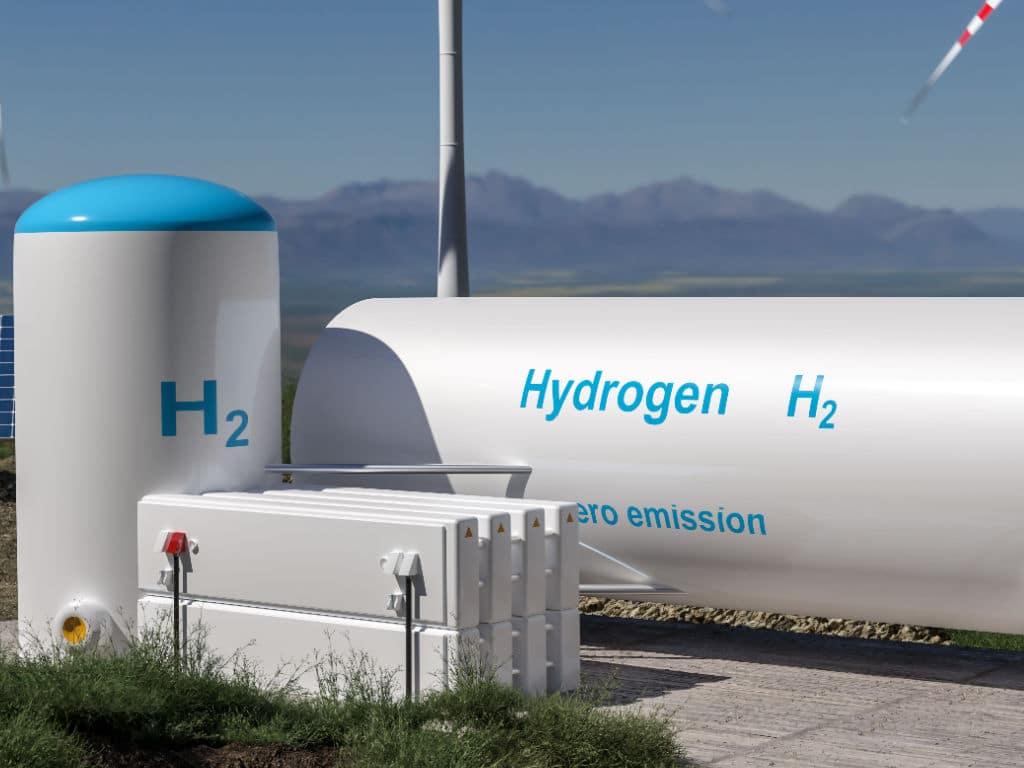The Round Tables of Arbois and the Mediterranean (RTAM) open on 3 May 2023 in Aix-en-Provence, France. Organised by the Mohammed VI Polytechnic University (UM6P) of Morocco in collaboration with the University of Aix-Marseille and the National Centre for Scientific Research (CNRS) based in Paris, the annual meeting runs until 4 May. For its 13th edition, RTAM will welcome industry leaders, research and innovation actors, students and civil society representatives from all over the world around a programme of plenary conferences with the central theme of “Hydrogen tomorrow: myths & realities”. And it will be on the global hub of this industry, namely Africa, that most of the debates will be focused.
Indeed, green hydrogen is becoming more and more talked about on the continent, especially in North and Southern Africa where governments are betting on this emerging industry for the energy transition and the decarbonisation of economies and transport. Morocco, for example, has already signed several partnerships with global investors and companies for the development of green hydrogen. The latest contract dates from February 2023 with Total Eren for a green hydrogen and ammonia project in the Guelmim-Oued Noun region. The subsidiary of French oil company TotalEnergies intends to invest 100 billion Moroccan dirhams (more than 9.4 billion euros) in the project.
Africa at the forefront of green hydrogen production
Egypt, which also has significant renewable energy potential, wants to invest $4 billion to support the development of green hydrogen over the next few years. Commitments such as those made by the country of the pharaohs are far from being precise in most countries of the continent. Yet according to the report “Africa’s Extraordinary Green Hydrogen Potential”, investing in green hydrogen could reduce carbon dioxide (CO2) emissions in Africa by 40%, thus avoiding the release of 500 million tonnes of CO2 per year, while contributing to the continent’s development. In addition, the industry could enable Africa to supply up to 25 million tonnes of green hydrogen to global energy markets, equivalent to 15% of the gas currently used in the European Union (EU).
Green ammonia, made from hydrogen produced by electrolysis from renewable energy, also supports the decarbonised development of agriculture by reducing greenhouse gas (GHG) emissions from fertilisers.
During these two days of exchanges, it will therefore be a question of finding solutions to accelerate the development of the green hydrogen sector in Africa, a lever for sustainable development and the fight against climate change. The various workshops planned will serve as frameworks for reflection.
A range of topics to understand the challenges of hydrogen
The thousand or so participants expected to attend the event will be taking part in 15 workshops. During the first day of the Arbois and Mediterranean 2023 Round Tables, the debates will focus on eight themes: “What research and development on decarbonated hydrogen”, “Ammonia, that other hydrogen”, “Green and turquoise hydrogen: competition or complementarity”, “Thinking and building the energy transition with the territories – a multi-actor and multi-criteria aid for the implementation of a decarbonated hydrogen sector in France”, “Green hydrogen: a vector of transition for our territories”, “Hydrogen safety with regard to explosions: state of the art” and on the “Political dimension of the development of hydrogen as an energy vector”.
On 4 May 2023, seven other topics will be discussed, in particular “Development of a French hydrogen industry: conditions for success”, “Green liquid hydrogen as a future solution for mobility”, “The role of hydrogen in the global energy transition: where do we stand”, “Hydrogen Europe”, “Fuel cell vehicles: applications and challenges”, “The hydrogen economy, the future is already part of the past, its myths and realities” and the topic “Agriculture and hydrogen
For more information on the event, click here.
Inès Magoum
